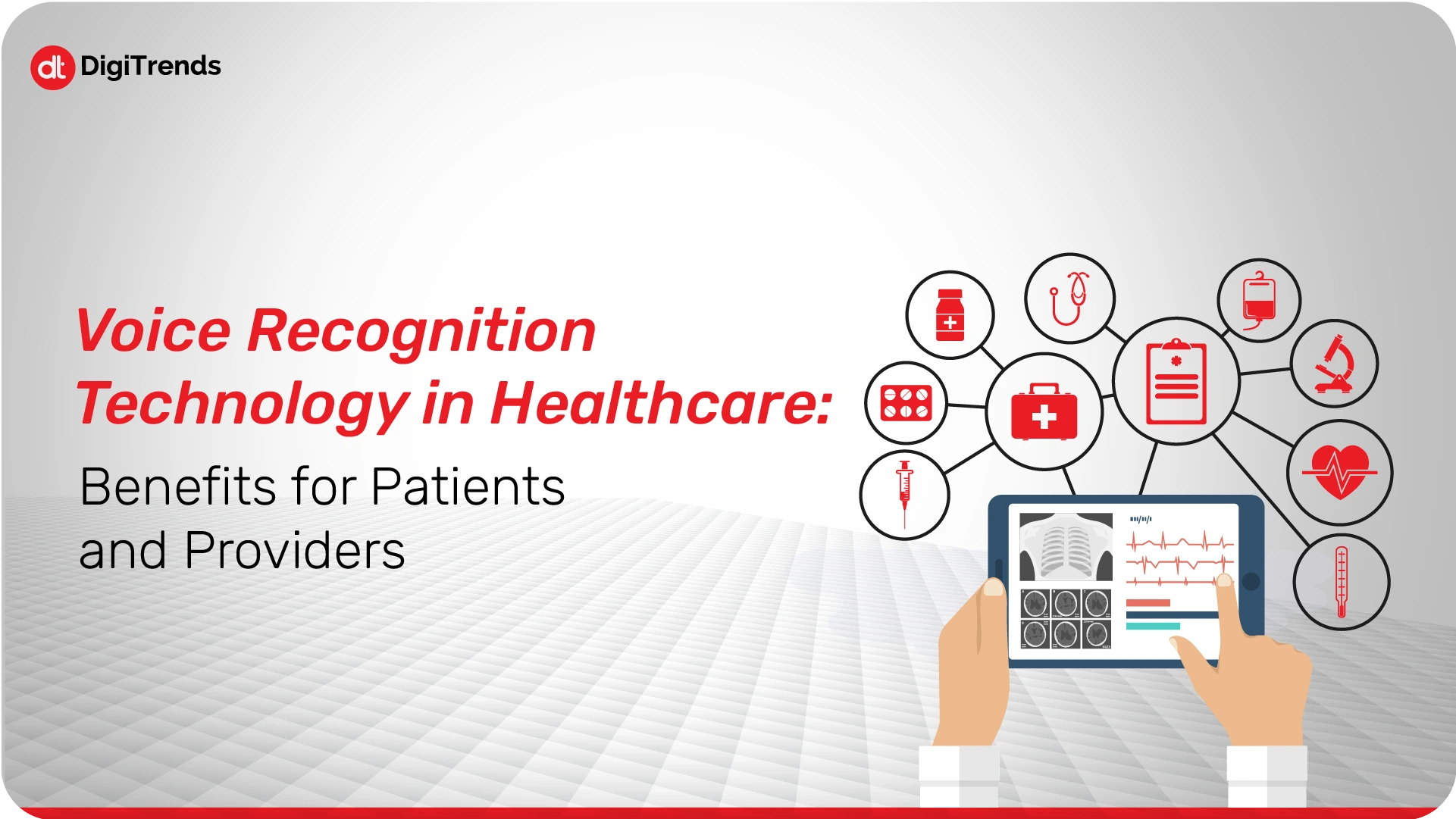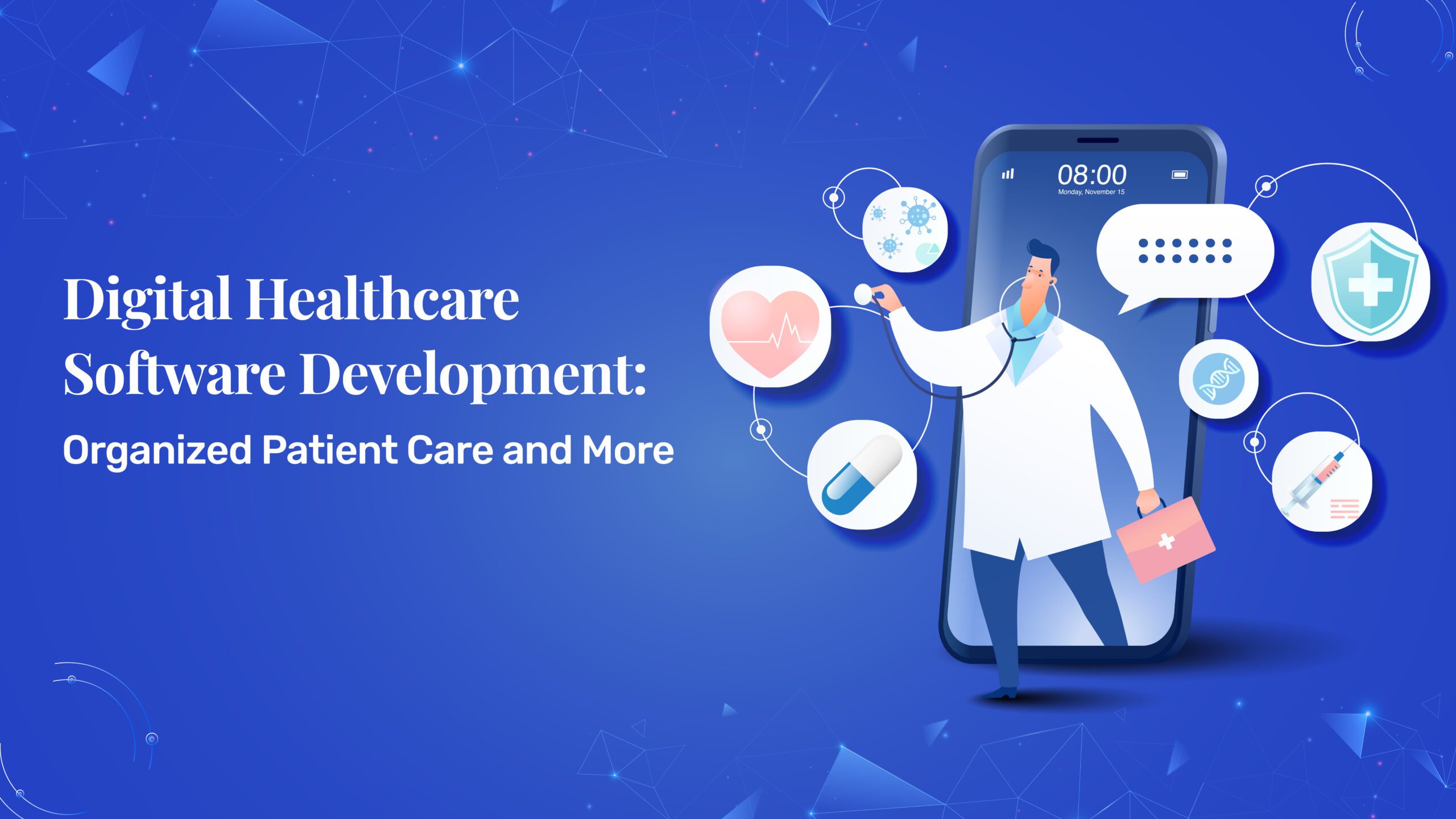
Voice Recognition Technology in Healthcare: Benefits for Patients and Providers
Explore how voice recognition technology is being used across healthcare and the role of voice assistants in clinical environments.
Continue Reading
The healthcare industry is going through a dynamic transformation driven by the integration of cutting-edge digital technologies. Digital healthcare software development plays a pivotal role in this evolution, offering innovative solutions that are revolutionizing patient care, empowering providers, and optimizing healthcare delivery.
The demand for accessible, efficient, and cost-effective healthcare is reaching extraordinary levels. Traditional healthcare systems are struggling with rising costs, overburdened infrastructure, and an aging population with complex needs.
Digital healthcare software development emerges as a powerful response to these challenges, offering abundant benefits
Patients are increasingly taking charge of their health, and digital tools empower them to do so effectively. Mobile apps can facilitate medication adherence, track vital signs, provide personalized health education, and enable remote monitoring of chronic conditions.
This active participation improves health outcomes and fosters a sense of ownership over well-being.
Digital platforms capture and analyze vast amounts of healthcare data, providing invaluable insights for clinicians. Electronic health records (EHRs) offer a comprehensive view of a patient’s medical history, facilitating accurate diagnoses and data-driven treatment decisions.
Advanced analytics tools uncover hidden patterns and trends, enabling proactive interventions and personalized medicine approaches.
Trusted by
















Secure messaging platforms and telehealth solutions bridge communication gaps between different healthcare professionals, fostering seamless collaboration and timely care coordination.
This improved communication empowers healthcare teams to deliver more efficient and effective care, ultimately benefiting patients.
Automation of administrative tasks, streamlined workflows, and optimized resource allocation are some of the ways digital healthcare software contributes to cost reduction.
Additionally, remote consultations through telehealth platforms can decrease hospital readmission rates and associated costs.
The impact of digital healthcare software development extends far beyond individual patients and healthcare providers. It has the potential to transform entire healthcare systems:
Digital healthcare software can significantly improve public health outcomes for entire communities by enabling early detection and prevention of diseases, promoting healthy lifestyles, and facilitating efficient resource allocation.
Telehealth and remote monitoring tools can bridge geographical barriers and reach underserved populations, promoting greater access to quality healthcare for all.
The digital healthcare software industry has a diverse range of solutions, each addressing specific needs and challenges.
Here’s an overview of some key areas:
EHRs serve as the cornerstone of digital healthcare, providing a centralized platform for storing and managing patient medical information.
Choosing the right EHR system requires careful consideration of factors like functionality, interoperability, security, and user-friendliness.
Telehealth platforms enable remote consultations between patients and healthcare providers, offering convenient access to care, particularly in rural areas or for individuals with mobility limitations.
These platforms can facilitate video conferencing, secure messaging, and even remote monitoring of vital signs.
A wide range of mobile apps and online tools authorize patients to actively participate in their health management.
These tools can help with medication observation, symptom tracking, appointment reminders, and personalized health education.
CDSS leverages artificial intelligence and machine learning to analyze patient data and provide evidence-based recommendations to healthcare providers, aiding in diagnosis, treatment selection, and medication management.
The vast amount of data generated in healthcare systems holds immense potential for improving care delivery.
Advanced analytics tools help extract valuable insights from this data, identifying trends, predicting risks, and informing strategic decision-making.
Trusted by
















We explored the transformative potential of digital healthcare software development and its key areas of application. Now, let’s dive deeper into the practical considerations for developing these solutions, showcase inspiring success stories, and peer into the exciting future.
Successfully launching a digital healthcare software development requires careful planning and attention to detail.
Here are some crucial considerations:
The healthcare industry is heavily regulated to ensure patient privacy and data security. Adherence to regulations like:
Safeguarding patient data is paramount. Implement robust security measures including:
Trusted by
















Your software should seamlessly integrate with existing healthcare IT systems:
A user-friendly interface is crucial for both patients and healthcare providers:
Plan for future growth and evolving needs:
As AI and machine learning become increasingly integrated into healthcare software, ethical considerations come to the forefront:
By keeping these factors in mind, you can develop digital healthcare software that is effective, compliant, secure, and user-friendly, paving the way for positive change in the healthcare landscape.
Trusted by
















Numerous digital healthcare software solutions are making a real impact on patient care and healthcare delivery. Here are a few inspiring examples:
These success stories demonstrate the diverse applications and significant impact of digital healthcare software development.
The future of digital healthcare software development is filled with exciting possibilities driven by emerging technologies like:
AI-powered algorithms will continue to play a pivotal role in diagnostics, treatment recommendations, and even drug discovery.
ML algorithms will analyze vast datasets to personalize care plans, predict health risks, and optimize resource allocation.
Wearable devices and connected medical devices will generate real-time health data, enabling remote monitoring and proactive interventions.
Blockchain technology can ensure secure and transparent data sharing between healthcare providers and patients, fostering trust and collaboration.
Trusted by
















While the future of digital healthcare software development holds immense potential, there are also challenges to address:
Despite these challenges, the opportunities presented by digital healthcare software development are vast and transformative. Here are some key trends to watch:
Digital healthcare software development is revolutionizing the way healthcare is delivered and experienced. By addressing key considerations, learning from success stories, and embracing emerging technologies, we can harness the power of digital solutions to create a future where healthcare is more accessible, efficient, and personalized for all.